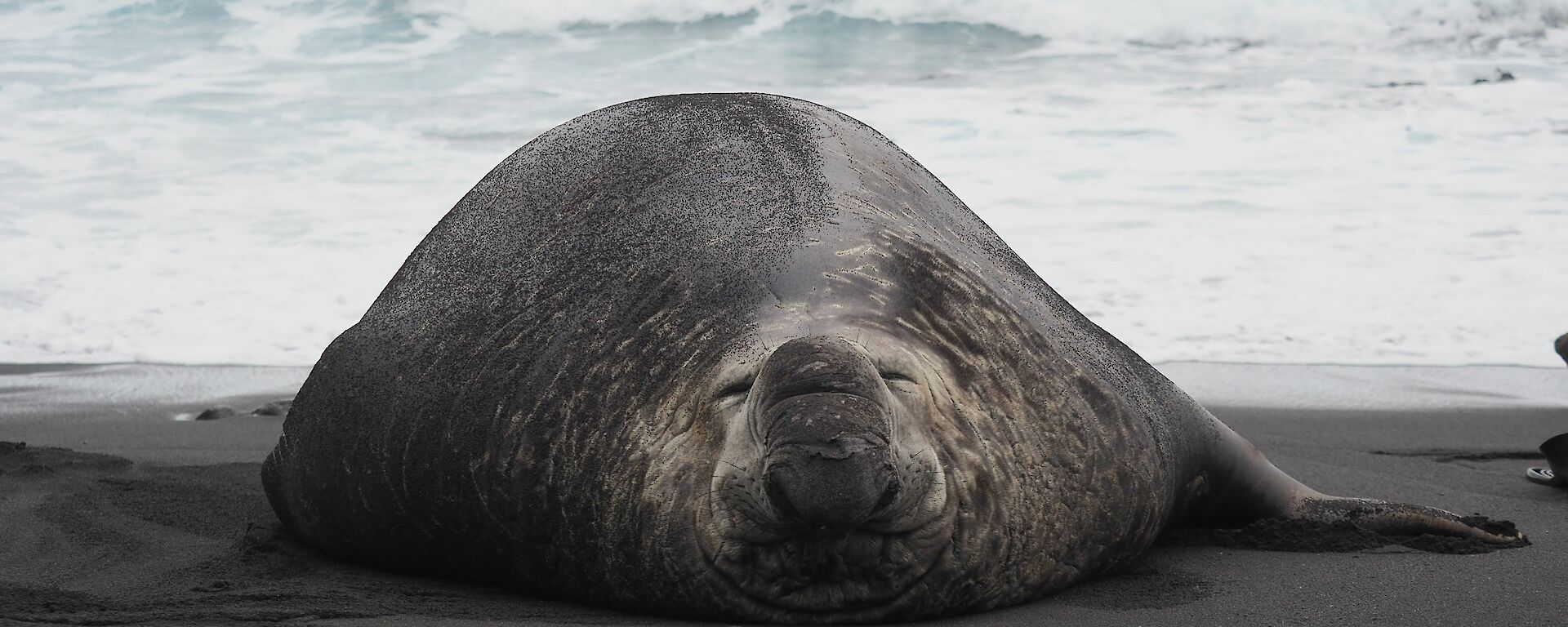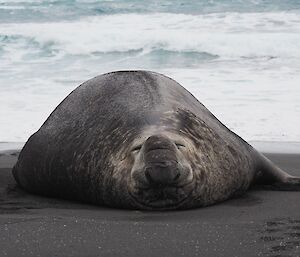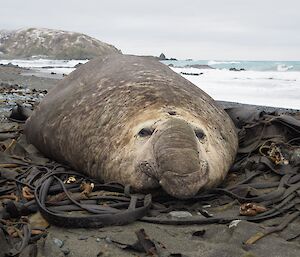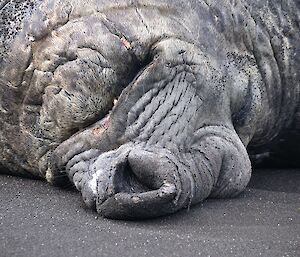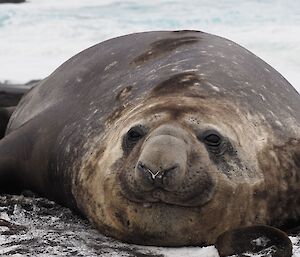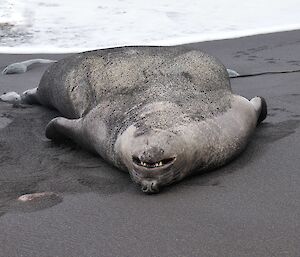Despite our wintery August weather lately, including our heaviest snowfall, spring is fast approaching on Macquarie Island. The endemic Macquarie Island shags are courting, some northern giant petrels already have eggs and soon species absent during the winter months will return, including royal and rockhopper penguins and our four species of albatross.
By far the most impressive recent change is the return of the enormous southern elephant seal (Mirounga leonina) bulls — they spend the majority of their lives at sea but some are now returning for the breeding season. Elephant seals are the largest seal species — bulls can be four or five metres long and weigh over 3000 kilograms. The most formidable bulls are called ‘beachmasters’.
There is not much to see yet, other than the beachmaster contenders positioning themselves in potential territory along the coastline and roaring loudly using their very large proboscis (nose). Soon thousands of cows will return to the island to have their pups in dense colonies called harems. There will be many harems along the Macquarie Island coastline from September onwards — the largest ones will have over 500 cows. The cows are much smaller at two to three metres in length and weigh around 600 kilograms.
In the meantime, the beachmasters will stake out their territory and prepare — they have a busy time ahead fighting challenger bulls and mating. Beachmasters who successfully defend their territory until the end of the breeding season (early November) will not leave to find food throughout this time and will rely on their blubber reserves.
Southern elephant seals are a threatened species that are protected under Tasmanian and Australian legislation. Annual monitoring at Macquarie Island has shown that the island’s elephant seal population is experiencing a slow decline. Although it is difficult to understand the reasons for the population decline, it is likely that the foraging habitat of the population is being impacted by changes to Antarctic sea ice extent due to climate change.
Andrea (TasPWS Ranger in Charge)

